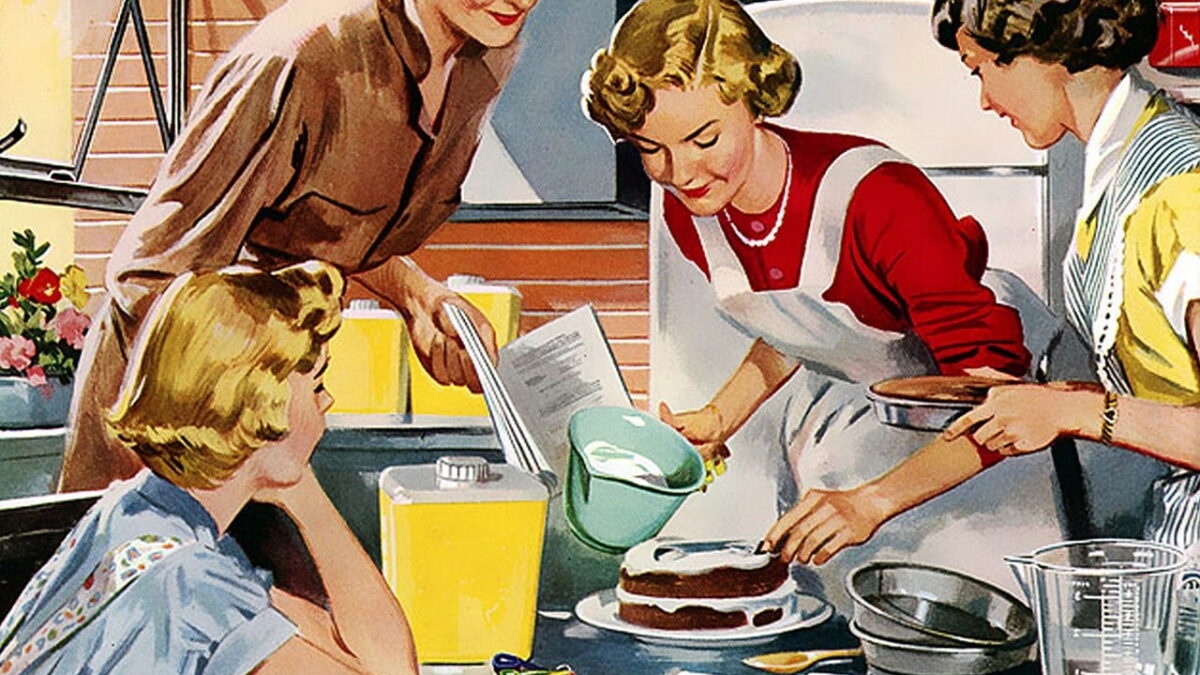
My husband and I have tried to raise all of our children to be empathetic, thinking people who strive to reach their full potential and care deeply about the needs and rights of others. So, when our 17-year-old daughter returned home last summer from a six-week academic enrichment program, I was not entirely surprised to hear her calling herself a feminist.
I consider myself a feminist too, but up until now it wasn’t a term I often used. After all, feminism is a loaded word, conjuring up powerful, and in some cases negative, images.
However, now that both of my daughters are teenagers, I realize it has been a mistake to shy away from this label. I am a feminist in the truest sense of the word: a feminist in the tradition of John Paul II, not in the tradition of Gloria Steinem. Being a feminist is an integral part of who I am as a Catholic. With my daughters embracing feminism, I want to be sure that they know what that means for us as Catholic women—and what it doesn’t.
Feminism doesn’t belong to any one cause. For some people the word “feminist” has a negative connotation. For Catholics this is in part because the feminist movement of the 1960s and 70’s ushered in the legalization of abortion. Being pro-choice is often seen as synonymous with being a feminist.
But abortion isn’t the defining issue of feminism. Being a feminist doesn’t automatically make a person pro-choice, and being pro-life in no way means that a person is anti-feminist. Rather, true feminism simply means to recognize the dignity of women and to advocate for women’s social, political, legal, and economic rights.
Being a New Feminist means caring about economic and educational equality for women. True feminism insists that women and girls should be educated so that they have the same economic opportunities as men. Not only that, the dignity of women demands that a woman should be educated regardless of whether she chooses to pursue economic gain from her education. In other words, a high school diploma, a college degree, or even a graduate degree is not wasted on a woman even if she stays at home to raise children rather than using her education in the workforce.
As Rose Kennedy once said, “I looked on child-rearing not only as a work of love and duty but as a profession that was fully as interesting and challenging as any honorable profession in the world and one that demanded the best that I could bring to it.”
An education is never wasted on anyone—not even a stay-at-home mom. And if a woman does choose or need to enter the workforce, her pay should be equal to that of men who do the same work, and she should have the same opportunities for advancement.
New Feminism recognizes that women are capable of making contributions to society equal to those of men. Through art, education, politics, economics, science, and religion, women are able to use our unique gifts to enrich our families, communities, and cultures.
New Feminism recognizes that women are empowered because of their femininity—not in spite of it. Women’s contributions to society, as essential as the contributions of men, stem directly from our uniquely feminine gifts. Reflecting on John Paul II’s apostolic letter “Mulieris Dignitatem,” Catholic journalist Mary Jo Anderson outlines four feminine attributes that are an integral part of what John Paul II referred to as the feminine genius: receptivity, sensitivity, generosity, and maternity. New feminism recognizes the beauty and power of women’s uniquely feminine gifts and the ways in which those gifts contribute to society.
Catholic feminism recognizes that equality does not have to be sameness. Because the Catholic Church recognizes the unique gifts of women, and the importance of those gifts to aid humanity in not falling (Vatican II), a New Feminist also recognizes that a woman’s contributions to the church and world do not have to be identical to a man’s. Men and women offer different gifts to humanity, but our call to holiness and our ability to contribute to society are equal. To say that women have to fill the same roles as men in order to be equal to men would be to ignore and demean the unique gifts of women and men alike.
True feminism opposes the objectification of women. In his “Letter to Women,” John Paul II laments, “Yet how many women have been and continue to be valued more for their physical appearance than for their skill, their professionalism, their intellectual abilities, their deep sensitivity; in a word, the very dignity of their being!”
Anything that measures a woman’s worth based solely on her appearance directly opposes women’s dignity. Sexualizing women, equating their value primarily with sex and sexiness, reduces women to commodities and certainly assaults their dignity.
Of course this includes sex trafficking and pornography, but it also includes the sexualization of women through advertising, fashion, and entertainment. Anytime a woman is reduced to a “hot product” to be admired only for her looks and to be consumed strictly for pleasure, the true beauty of the woman is lost. True feminism recognizes the true beauty of women and seeks to honor that beauty.
True feminism supports motherhood. The gift of giving life has been entrusted only to women, and bringing children into the world is, in turn, one of women’s greatest gifts to humanity. Yet women often lack the emotional, medical, and financial support they need to enjoy healthy pregnancies and the full joy of motherhood.
Radical pro-choice feminism’s answer to women facing an unplanned or difficult pregnancy is too often abortion. New Feminism empowers women to embrace life. New Feminists recognize that women are capable and strong, and New Feminism affirms that life is far more empowering than death.
My daughters are growing up in a time when there are more opportunities for women than ever. Good for them! I hope that as they seek these opportunities, they will do so in the spirit of New Feminism. I pray that they will feel empowered and supported by a society that recognizes their dignity, and I pray that they will use all of their God-given feminine gifts to make the world a better place—as only women can.









